UAE’s industrial sector witnessed a remarkable growth and transformation in 2023 by encompassing and synergizing the strong partnership between the Ministry of Industry and Advanced Technology (MoIAT) and the private sector. The strategy is aligned with national goals and international commitments relating to advancing sustainable economic growth, deploying clean energy solutions, driving industrial innovation, and promoting responsible consumption and production.
The project operation 300bn aims and encourages sustainable development and leads to the Fourth Industrial Revolution which encapsulates an overall gamechanger to the UAE economy and its competitiveness. It aims to raise the industrial sector’s contribution to the GDP from the current AED 133 billion to AED 300 billion by 2031.
MoIAT Strategy
MoIAT’s Operation 300bn strategy is a comprehensive plan for developing the UAE’s industrial sector and improving its role in stimulating the national economy and abridged to:
• develop the UAE’s industrial sector, both macro and micro level.
• increase its in-country value (ICV) program.
• establish the country as a preferred global hub for industries.
• build the reputation of the UAE’s industrial products through the promotion of exports to global markets.
• create quality job opportunities in the industrial sector.
Objectives of MoIAT which formulated the strategy
The strategy is built on the following 6 objectives:
1. to create a relevant and attractive business environment for local and international investors in the industrial sector. 2. to support the growth of national industries and enhance their global competitiveness.
3. to stimulate innovation by accelerating advanced technology adoption across the industrial value chain to upgrade systems and solutions, boost productivity and forge competitive advantages in new areas.
4. to build on the solid industrial foundations that have helped fortify the UAE’s position as a global leader in industries of the future.
5. to cultivate a culture of innovation in the ministry.
6. to provide a comprehensive array of administrative services in accordance with the highest standards of quality, efficiency, and transparency.
Initiatives adopted to implement the strategy
• established an integrated R&D ecosystem
• continuous efforts to position UAE as a pioneering global destination for technology and innovation
• improvement in developing an advanced technology roadmap that drives innovation
• established standards and metrology that support advanced technology adoption
• catalysing the adoption of the 4IR technology to boost the productivity of anchor industries
• consistent monitoring of ICV program
• continuous promoting ‘Made in the Emirates’ brand and national products
• developed an integrated quality infrastructure
• continuous negotiation of reciprocal trade agreements and work to control the classification system of traded products for export and import
• new industrial law has been implemented
• offering attractive energy and gas tariffs to eligible sectors
• launched a framework for partnerships with industrial sectors to develop standards and metrology
• providing flexible financing at competitive costs for priority sectors
• digital transformation to simplify registration, licensing and fee procedures
• built a data management platform
Vital Industrial Sectors Identified
The following sectors have been identified to stimulate the growth and achieve the very objectives.
• food, beverage, and agricultural technology
• pharmaceuticals
• electrical equipment and electronics
• petrochemicals and chemical products • rubber and plastics
• machinery and equipment
• hydrogen
• medical technology
• space technology
Progress of the project Operation 300bn and the steps adopted so far
Operation 300bn project achieved many milestones since its announcement and implemented many investor friendly measures to accelerate its success.
Abu Dhabi Industrial Development Bureau (IDB) endorses significant achievements in the year 2023 within the industrial sector, with numerous initiatives and programs supporting the objectives of Operation 300bn, along with the Abu Dhabi Industrial Strategy (ADIS). The strong performance of the industrial sector in 2023 reflects the continued success of ADIS initiatives. The sector now represents over 17 percent of Abu Dhabi’s non-oil GDP and 9 percent of overall GDP.
Dubai Industrial City witnesses the presence of more than 800 customers and 300 operational factories within Dubai Industrial City. The collaboration with the Ministry of Industry and Advanced Technology helped Dubai Industrial City to launch their “Make Brilliance” global awareness campaign in 2023, where they executed a tripartite agreement with MoIAT and Emirates Development Bank (EDB) to boost the ‘Make it in the Emirates’ initiative. As part of the agreement, EDB committed to providing AED 1 billion in financing for Dubai Industrial City’s customers over the next three to five years.
MoIAT issued 263 new industrial production licenses in 2022, a 20 per cent increase over 2021, while the National In-Country Value program succeeded in redirecting Dh53 billion into the economy, a 25 per cent increase.
The Ministry is also providing financial incentives through seven local and international financial institutions and has reduced 14 service fees to cut the cost of doing business.
MoIAT announced that more than 300 products can be manufactured locally by investing in excess of Dh110 billion as part of companies’ procurement requirements for the next decade across 11 growth sectors.
MoIAT aims to unveil more than 1,000 technological projects by 2031, raise advanced technology exports to Dh15 billion and increase the GDP of advanced technology to Dh110 billion.
The Ministry signed an integrated industrial partnership with Egypt, Jordan, and Bahrain. As part of the partnership, the first wave of industrial projects worth more than $1 billion was unveiled last year.
Role of Emirates Development Bank (EDB)
EDB plays a key role and a prominent enabler in succeeding the objectives of MoIAT. EDB has earmarked a portfolio of AED 30 billion to support the industrial sector over a period of five years. The bank aims to finance 13,500 SMEs and create 25,000 jobs in the following sectors.
Manufacturing
petrochemicals, plastics, heavy industries, machinery, electrical appliances and renewable energy equipment
Infrastructure
energy, transportation, communications and digital infrastructure
Technology
software, IT, storage devices, peripherals, renewable energy technology and education technology
Healthcare
pharmaceuticals, biotechnology, medical equipment and hospital services
Food security
agriculture, livestock, aquaculture and water desalination.

